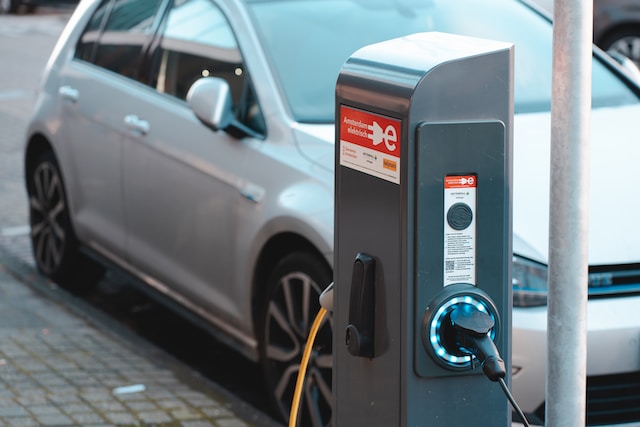Contents
- 1 Introduction
- 2 Gasoline cars are likely to depreciate faster than electric cars.
- 3 Electric cars cost less to maintain than gasoline cars.
- 4 Electric car maintenance is cheaper than a car with an internal combustion engine (ICE) because there are no spark plugs, belts, or hoses to replace, and it is much easier to access the major components of an e-car.
- 5 Some electric vehicles (EVs) have a range that’s too short for long road trips.
- 6 The average American commute is about 30 miles per day, which means that most people don’t need more than 100 miles of range in their EV.
- 7 It takes time for batteries in EVs to charge fully–sometimes as long as several hours–and the charging times vary depending on which charger you use and what type of battery pack your EV has (e.g., lithium ion vs. nickel metal hydride).
- 8 You’ll spend less money on energy costs if you drive an EV rather than a gas-powered vehicle because EVs use electricity instead of gas, which saves you money on both fuel and maintenance costs over time.
- 9 Conclusion
Introduction
As cars become more high-tech and fuel prices rise, more people are considering an electric vehicle (EV) as their next ride. Many people have bought EVs because they want to be environmentally friendly but don’t realize that EVs also save money over time. This article will compare the performance of electric vehicles with gasoline cars and give you some tips on how to choose an EV that fits your needs while staying within your budget.
Gasoline cars are likely to depreciate faster than electric cars.
Depreciation is the amount that a car loses in value over time. It’s one of the biggest costs associated with owning a vehicle, along with fuel and maintenance. Depreciation happens because cars wear out over time and lose their value as they’re driven more and more miles. A new car will depreciate faster than an older one, but even if you buy a used car that’s only two or three years old, it can still be worth less than what you paid for it (and probably won’t come close to recovering your initial investment).
The amount of depreciation depends on two things: how much you paid for your vehicle initially, and how many miles have been driven on it since then–the latter factor being especially important when comparing electric versus gasoline cars because most EVs tend to be less efficient at higher speeds than conventional internal combustion engines (ICEs).
Electric cars cost less to maintain than gasoline cars.
- You don’t need to change the oil.
- You don’t need to change the spark plugs.
- You don’t need to change the timing belt, air filter and fuel filter.
- You don’t have to worry about transmission fluid either!
Electric car maintenance is cheaper than a car with an internal combustion engine (ICE) because there are no spark plugs, belts, or hoses to replace, and it is much easier to access the major components of an e-car.
An electric car is easier to maintain than a gasoline-powered vehicle. The main reason for this is that there are no spark plugs, belts or hoses to replace on an EV. This means that there are fewer parts that need to be serviced regularly–and when they do need attention, it’s usually less expensive than traditional maintenance because you can access the major components of your car without having to remove inner panels or other obstructions.
Electric cars also require less maintenance overall because they’re inherently simpler machines with fewer moving parts than ICE vehicles (internal combustion engine).
Some electric vehicles (EVs) have a range that’s too short for long road trips.
The range of an EV is affected by many variables, including vehicle weight and terrain. A heavier car will require more energy to move than a lighter one; therefore, the battery in a heavy vehicle must be larger in order to maintain the same range as it would in another type of car.
If you drive slowly or stop frequently while driving on hilly terrain, your battery will drain faster than if you were driving along flat roads at higher speeds. In addition to considering these factors when choosing your next automobile purchase–and perhaps buying an EV instead of a traditional gas-powered vehicle–you should also consider how much time you spend traveling each week so that when it comes down to cost analysis later on down the line (which we’ll get into below), those extra hours spent behind the wheel don’t eat up all the money saved by not having gas bills every month!
The average American commute is about 30 miles per day, which means that most people don’t need more than 100 miles of range in their EV.
You may be wondering how much range you need in your EV. The average American commute is about 30 miles per day, which means that most people don’t need more than 100 miles of range in their EV. However, there are other factors to consider when deciding whether an electric car will work for you.
For instance, if you live in a place with lots of hills and stop-and-go traffic or drive a lot on the highway (where speeds drop), then having more than 50 miles per charge could be helpful. On the other hand, if you mostly drive around town without ever going above 60mph (or even 35mph), then having less than 40 miles per charge might work well enough for your driving habits and lifestyle.
It takes time for batteries in EVs to charge fully–sometimes as long as several hours–and the charging times vary depending on which charger you use and what type of battery pack your EV has (e.g., lithium ion vs. nickel metal hydride).
Oops! Click Regenerate Content below to try generating this section again.
You’ll spend less money on energy costs if you drive an EV rather than a gas-powered vehicle because EVs use electricity instead of gas, which saves you money on both fuel and maintenance costs over time.
You’ll spend less money on energy costs if you drive an EV rather than a gas-powered vehicle because EVs use electricity instead of gas, which saves you money on both fuel and maintenance costs over time.
Electricity is cheaper than gasoline: While the cost of electricity fluctuates with market conditions, it’s generally cheaper than buying gasoline for your car. In fact, The U.S Energy Information Administration estimates that fueling up with electricity costs about $1 per gallon (3 cents per liter) compared to $2-$3 per gallon ($6-9 per liter) for gasoline in 2018.* In addition to saving money on fuel costs, EVs also have higher efficiency ratings than ICE vehicles (at least 30% better), so they require less energy to travel the same distance.* That means that even though they may be more expensive upfront than traditional internal combustion engine (ICE) cars or trucks–which run solely on internal combustion engines that burn fossil fuels like diesel or gasoline–you’ll actually pay less over time thanks to lower maintenance costs and lower operating expenses such as insurance premiums.*
Conclusion
We hope this article has helped you understand the benefits of driving an EV. If you’re interested in purchasing one, we recommend looking at the Tesla Model 3 or Chevy Bolt. Both vehicles offer plenty of range at reasonable prices while still being affordable enough for most Americans who want to make the switch from gas-powered cars to electric ones.

